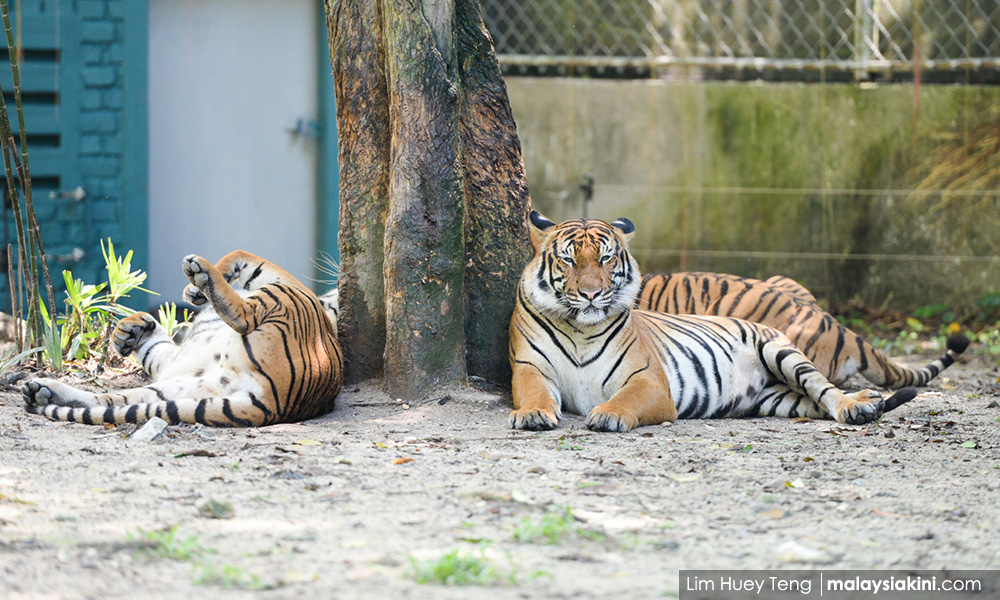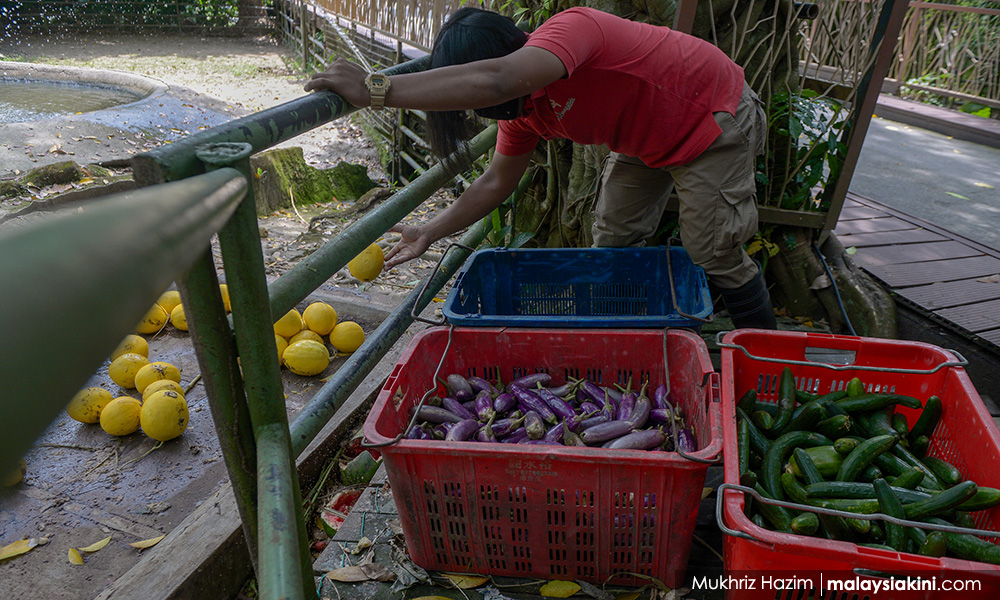LETTER | Many activists and animal lovers worldwide have raised concerns on the relevance of zoos in the post-Covid-19 era.
They believe that we, as humans, need to be more empathetic, considering we have now experienced what it feels like to be caged in lockdown.
It seems like lockdown has a detrimental effect on our well-being as well as animals in zoos.
So, the question here is, should zoos around the globe close their doors?
Well, many different answers can be derived from this question. However, many experts still believe that we need zoos for wildlife conservation, especially endangered ones, as many species are almost extinct.
You might not know that 85 percent of the animals in Zoo Negara are endangered species and 15 percent are heading towards extinction.
Hence, similar to other zoos worldwide, Zoo Negara underwent many conservation breeding programmes to help preserve and protect wildlife.
Not only that, but the national zoo also plays a significant role in educating and creating awareness about different species that exist on the earth, as well as bridging the connection between humans and animals.
Thus, it is vital for zoos to study and understand how species interact within their ecosystems, as well as how they are affected by environmental and human influences.
With this understanding, zoo managements will have knowledge on how to provide excellent settings and suitable atmospheres for their captives.
For instance, scientists at Queen's Animal Behaviour Centre revealed that classical music and scents such as lavender in dog shelters calm the animals. Plus, shielding zoo-housed gorillas from visitors with camouflage netting over the viewing windows will prevent the great apes from becoming agitated.
Indeed, many things can be done to enhance the animals' psychological well-being, but one thing for sure, there is no "one size fits all" welfare model, as one should account for the numerous ranges of animals' biological requirements and needs.

In the same token, all necessary measures should also be taken to ensure that the animals are not abused. Rather than being kept in cages, they should be housed in open and spacious enclosures that allow them to move freely, with enough barriers between them and humans.
As for the zookeepers, to avoid negative interactions and poor relationships with zoo animals, they must be trained to be aware of and avoid fear-evoking behaviours.
Research shows that when zookeepers spent extra time mingling in positive interactions with chimpanzees like playing, grooming, feeding treats, and chatting, the animals behaved better, exhibited fewer abnormal behaviours and were less reactive.
And as for visitors, you play a significant role too. Ensure that you do not disturb the animals by making excessive noise levels or throwing food or other objects into their enclosures to get their attention.
These behaviours are unethical as it will stress animals out and cause a negative impact on their behaviour.
On the other note, the current pandemic has not only upended our way of life but also dramatically impacted zoo animals.
Zoologists around the world point out that intelligent and social animals, including gorillas, otters and meerkats are missing the attention of humans, as they are plunged into empty silence for quite some time due to the outbreak.
It seems like we are not alone amid the pandemic – animals do feel and react the same way as us.
Zoo animals are accustomed to routines and schedules like hanging out with human visitors as well as continually seeing the crowds who like to call out their names. Hence, with the sudden absence of human visitors, some of the animals suffer from boredom and loneliness.

According to Muhamad Akramin from the Public Relations & Marketing Department of Zoo Negara Malaysia, some of the zoo staffs remarked that their captives appear to notice this newly discovered silence.
For that reason, zoo employees are making efforts, like talking or visiting the animals more frequently, to keep them "occupied".
In the same token, Paul Rose, a lecturer in animal behaviour at the University of Exeter, said that without human visitors there is a lack of stimulation for some animals.
"Some animals such as primates and parrots, get a lot of enrichment from viewing and engaging with visitors. It is beneficial to the animal's well-being and quality of life. If this stimulation is not there, then the animals lack the enrichment," he said.
The management of the Giza Zoo in Egypt has established a programme that focuses on entertaining their animals. They focus on proper nutrition to keep animals healthy, provide them with their favourite types of food, and the necessary medical care to maintain their cleanliness and increase their immunity.
However, some animals seemed to enjoy their quiet moment and making the most of their own time.
In Hong Kong's Ocean Park, it is thought that Ying Ying, one of the resident pandas, may be pregnant after 10 years of natural mating attempts.
Michael Boos, executive director at Ocean Park, said: "Today's successful natural matching process is highly thrilling for us all because the probability of conception by natural matching is higher than through artificial insemination."
After all, across the board, zoologists conclude that changes in the usual routines of zoo animals affect different species in different ways.
All in all, though it will be some time before Malaysia will truly accept foreign tourists after their reopening, our local zoo now needs local visitors more than ever.
Yet remember, animals in zoos are undergoing their post-lockdown fuzz, and just like humans, they need time to adapt.
The staff in zoos will always be on hand to guide you, helping enforce social distancing and supporting you on how to act with the animals appropriately.
NURAFIFAH MOHAMMAD SUHAIMI is Research Assistant at EMIR Research, an independent think tank focused on strategic policy recommendations based on rigorous research.
The views expressed here are those of the author/contributor and do not necessarily represent the views of Malaysiakini.

